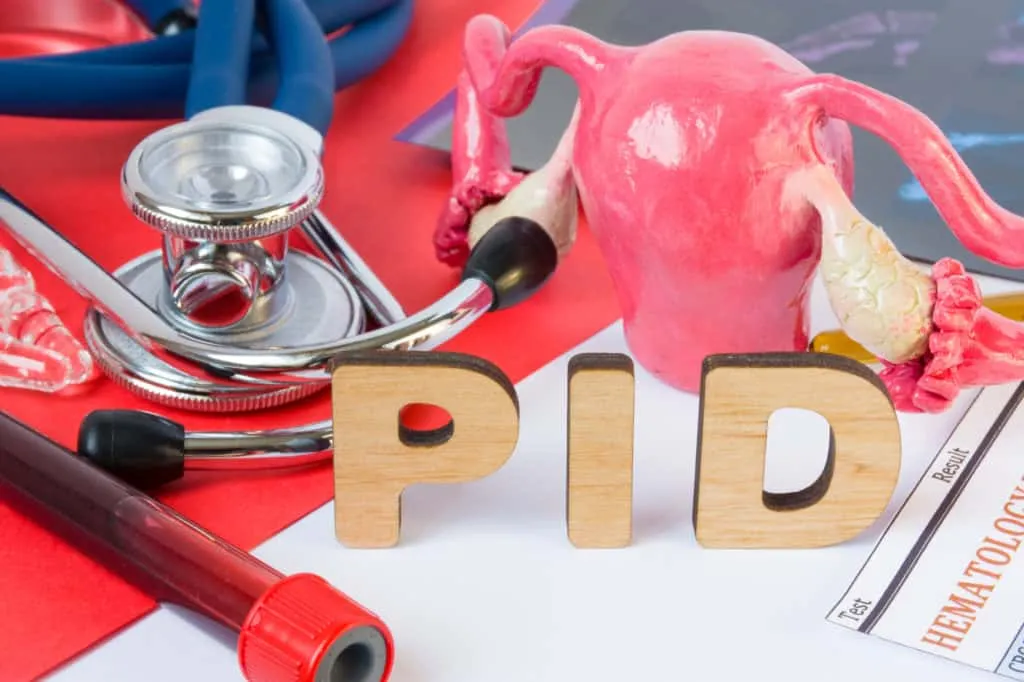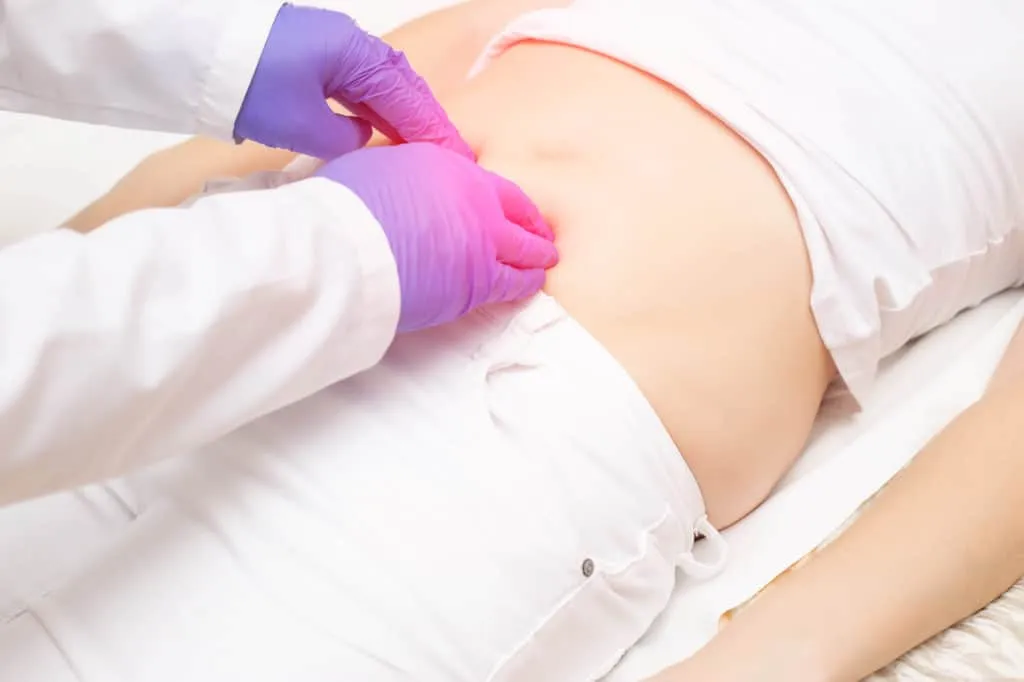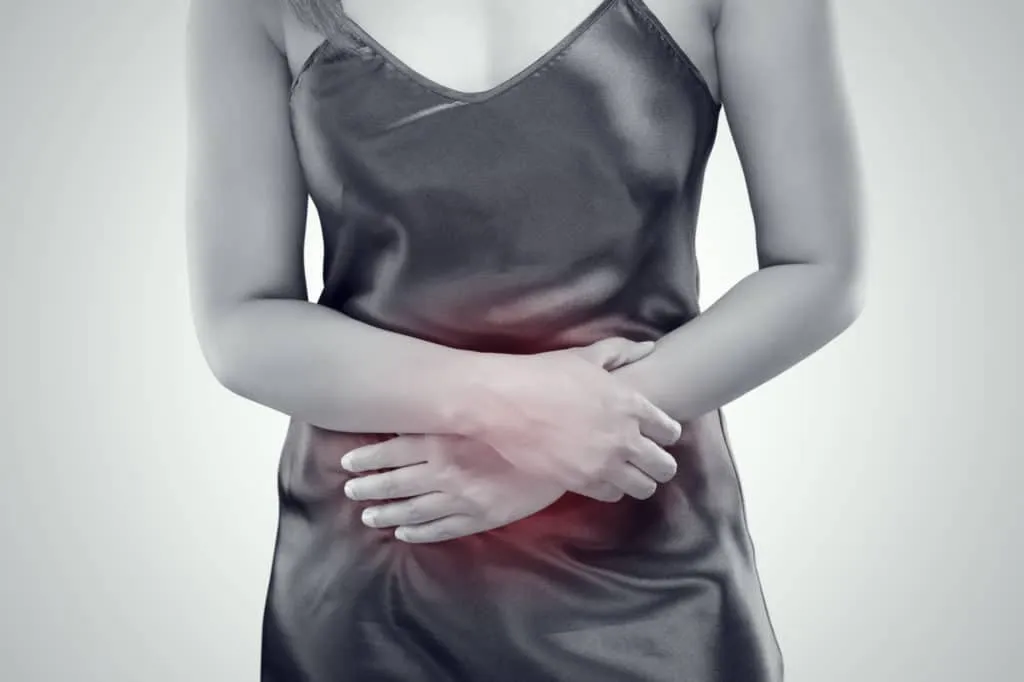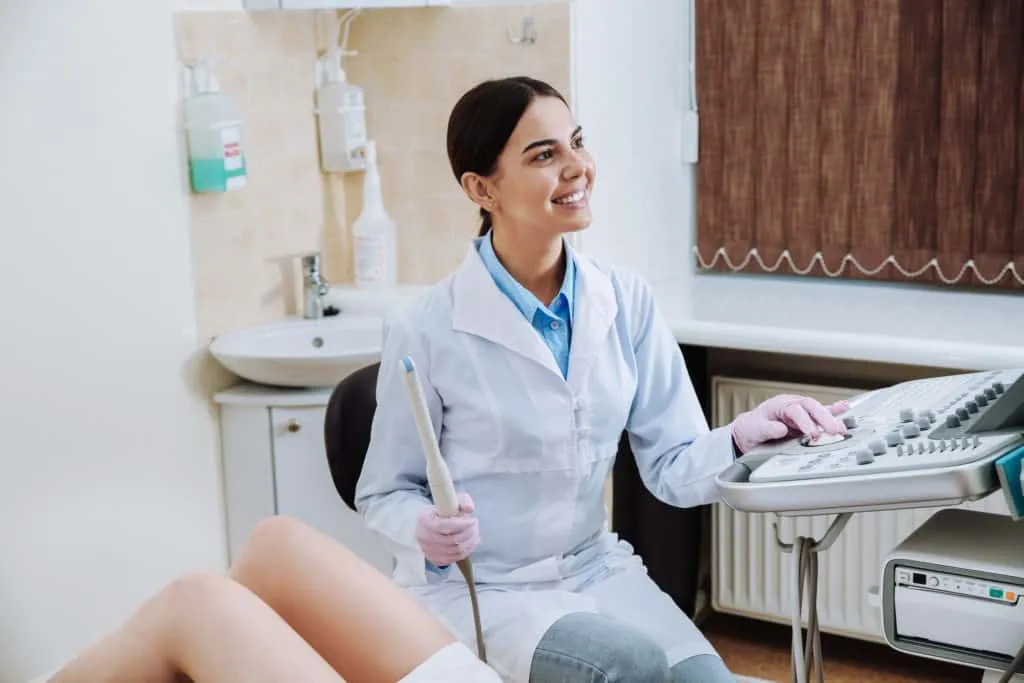Are you worried about your partner? Does she suffer from pelvic pain, pain after intercourse, urinary incontinence, or other symptoms in the pelvic region?
Of course, men can also suffer from pelvic problems. But for this article, we’re going to look at issues largely unique to the female form.
Is it affecting your relationship?
There are many different reasons why these types of symptoms occur in women. They range from interstitial cystitis, pelvic organ prolapses, and other types of pelvic floor dysfunctions to other medical conditions affecting the female reproductive system and surrounding organs, joints, and ligaments.
For example, problems in the pelvic region could be a warning sign of:
- Pregnancy
- Miscarriage
- Menstrual cramps
- Adenomyosis/Endometriosis
- Fibroids
- Pelvic Organ Prolapse
- Pelvic Floor Dysfunction
- Urinary tract infection
- STI
- Cervical, uterine, or ovarian cancer
- Polyps
- Benign cysts on the ovaries
- Bowel/bladder problems
They’re worth investigating and ruling out with her doctor or physical therapist. But one of the common causes of pelvic problems in women and is often overlooked is Pelvic Inflammatory Disease.
Pelvic Inflammatory Disease or PID generally occurs following an infection, most often via sexual transmission. The most common symptoms include vaginal discharge and pain in the lower abdomen and stomach around the pelvic region.
Doctors treat the infection with antibiotics, preventing further medical issues with prompt treatment. However, if the condition is left untreated, it can lead to problems further down the line. If your partner has this condition, you need to get a test and treatment, if necessary.
More Blogs From Universus:
Can I Adjust My Lifestyle To Prevent Neck Pain From Returning?
The Importance Of Relaxing Your Pelvic Floor Muscles
Pelvic Pain: This Is Not Something We Only See In Pregnancy Or The Postpartum Period
What Is Pelvic Inflammatory Disease?

Pelvic Inflammatory Disease (PID) occurs when the female reproductive organs are exposed to an infection. The organs affected include the fallopian tubes, the ovaries, and the uterus.
Women suffering from Pelvic Inflammatory Disease may experience various symptoms, but the most common is a pain in the pelvic region and a fluid discharge from the vagina.
How is Pelvic Inflammatory Disease Transmitted?
While most cases of Pelvic Inflammatory Disease infection generally result from unprotected sex, some cases are not caused by sexual transmission. But in most cases, bacteria are introduced into the vagina and female reproductive system during sexual intercourse, leading to infection.
Specific individuals are at a higher risk of contracting Pelvic Inflammatory Disease (PID), including those who have had multiple sexual partners, were sexually active before age 25, or had PID or another STI in the past like chlamydia or gonorrhea. But this is not always the case – it can occur from just one sexual encounter.
What Are The Effects Of Pelvic Inflammatory Disease?

Around a million women contract Pelvic Inflammatory Disease every year in the USA, of which approximately 100,000 suffer infertility as a result. The disease is also the cause of numerous ectopic pregnancies across the country.
In an ectopic pregnancy, the baby develops in the fallopian tubes instead of inside the womb. Therefore, women with ectopic pregnancies require urgent medical assistance.
The good news is that the number of Pelvic Inflammatory Disease cases has come down considerably in recent years, thanks to an increase in Sexually Transmitted Infection Testing and timely and effective treatment of infections because STIs are the primary cause of PID.
But in the long term, if left untreated, Pelvic Inflammatory Disease can harm the reproductive system, including critical organs like the fallopian tubes, ovaries, and uterus. So, aside from causing pelvic pain and other problems, Pelvic Inflammatory Disease can also cause infertility and difficulties in pregnancy later.
It can also lead to a condition called Tubo-Ovarian Abscess (TOA), which can pose a severe health risk without proper treatment.
How Does Pelvic Inflammatory Disease (PID) Develop?

When bacteria enter the reproductive system via sexual intercourse, it can develop into Pelvic Inflammatory Disease. From the vagina, the bacteria travel to the cervix, ovaries, fallopian tubes, and uterus and into the pelvic region. In most cases, the cervix prevents bacteria from spreading further from the vagina.
However, if there is a severe sexually transmitted infection like chlamydia or gonorrhea, the cervix cannot always control the spread of this bacteria into the female reproductive system. That’s why untreated chlamydia and gonorrhea often lead to Pelvic Inflammatory Disease.
But STIs are not the only case. Although rare, there are other reasons a woman might develop Pelvic Inflammatory Disease. They include:
-
- Undergoing a pelvic procedure
- Childbirth
- Having an abortion
- Using an Intra Uterine Device (IUD) for contraception because there is a small risk that an infection can occur in the early weeks after insertion.
What Are The Warning Signs of Pelvic Inflammatory Disease?

Most women don’t even know they have Pelvic Inflammatory Disease until they try to get pregnant or have a pelvic exam because the symptoms of pelvic pain and pain after intercourse can be mild and easily put down to other causes. However, more severe symptoms of PID and an underlying infection can include:
- Chills and fever with a nauseous feeling accompanied by vomiting
- Tenderness and pain in the stomach or lower belly
- Having pain during intercourse
- Experiencing a burning sensation while urinating
- Erratic monthly periods accompanied by cramping or spotting
- Odorous vaginal discharge that can be green/yellow colored
- Rarely pain in the upper part of the right abdomen
What To Do If Your Partner Suspects She Might Have PID?

The moment your partner experiences Pelvic Inflammatory Disease symptoms, they should seek professional medical help to find their symptoms’ root cause and get a diagnosis.
The quicker Pelvic Inflammatory Disease and other pelvic problems are treated, the more successful the prevention of further health problems and infertility.
The doctor will conduct a pelvic examination to look for signs of infection and take a vaginal swab. They may also do a pelvic ultrasound, blood tests, and urine tests to check for a urinary tract infection because the symptoms mimic PID.
In chronic cases of Pelvic Inflammatory Disease and pelvic pain, a Laparoscopy may be necessary. This procedure is where a camera is inserted into the lower abdomen to examine the reproductive organs.
What Is The Treatment For Pelvic Inflammatory Disease?

If your partner gets a diagnosis of Pelvic Inflammatory Disease, the doctor will prescribe a short course of oral antibiotics. However, she will need to complete the entire course, even if she feels better and symptoms dissipate. The doctor may also schedule a follow-up appointment to check that the medication is working.
In chronic cases of PID, some patients take the entire course of antibiotics but still exhibit symptoms. In these cases, women may need to get antibiotics via an IV in the hospital. IV Antibiotic Treatment may be the preferred option if:
- The patient has a chronic infection and is very sick
- There is a pus-filled abscess in the ovaries or fallopian tubes
- The patient is pregnant
Will She Need Surgery for Pelvic Inflammatory Disease?
Undergoing surgery for PID is very rare and only needed in severe cases. The doctor will only recommend surgery if the treatment is not working and an abscess is still present in the reproductive system.
Other Causes Of Pelvic Problems
If your partner undergoes tests for Pelvic Inflammatory Disease that turn out to be negative, a pelvic exam and transvaginal ultrasound show no structural abnormalities.
In that case, there are many other reasons why your partner might be experiencing pelvic pain, pain after intercourse, and other problems in that area, which Pelvic Floor Therapy can help.
What Is Pelvic Floor Therapy?

Pelvic Floor Therapy is a particular type of physical therapy that resolves dysfunction and restores proper function in the pelvic floor muscles. It helps reduce pelvic pain and discomfort, and pain after intercourse improves the quality of life of women with urinary incontinence and pelvic organ prolapse.
The pelvic floor is a hammock-like band of muscles and connective tissue that supports the pelvic organs and controls bowel and bladder function. Unfortunately, these muscles lose proper function due to chronic stress and tension, pregnancy, childbirth, or wear and tear.
Sometimes, they can’t relax and remain gripped tight, causing frequent urination, constipation, bowel or bladder leakage, and pain during intercourse. In other cases, the muscles lose strength, leading to pelvic organ prolapse and other problems.
The benefits of Pelvic Floor Therapy include but are not limited to:
- Pain-free sexual intercourse, increased libido, and better orgasms
- Reduced pain and discomfort during PAP tests and pelvic exams
- Better bladder control and more regular bowel movements
So, if your partner suffers from pelvic problems, we recommend that they book a free consultation with one of our Women’s Health Specialists for a confidential discussion about the issues they’re experiencing and how we can fix them.
If you talk to her and she’s interested, all she needs to do is to complete this short form, and we’ll be in touch to arrange her free 30-minute consultation. She can choose to have the consultation over the telephone or at our clinic in Huntington, NY.


